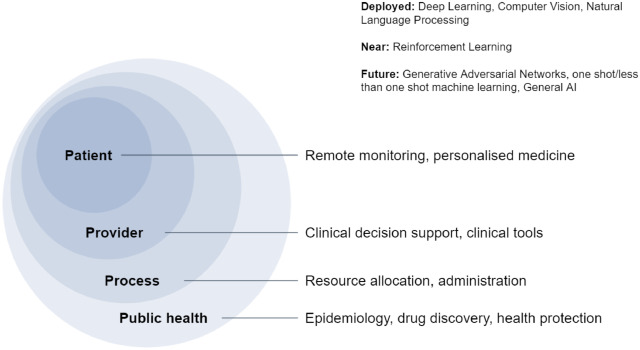Introduction
Artificial intelligence (AI) is reconfiguring various industries, and its potential impact on healthcare and climate change is gaining attention. The English National Health Service (NHS) aims to provide more efficient care while reducing its climate impact. However, concerns about carbon emissions from AI models have emerged. This article explores the role of AI in climate change debates and emission detection, with a focus on its implications for the NHS and beyond. It will also demonstrate how AI interventions in climate change can account for a potential solution for the NHS and beyond.
AI in Healthcare and Climate Improvement
AI tools have the potential to improve the quality and efficiency of healthcare services, including climate improvement and energy efficiency. However, the lack of standardized reporting for power, energy, and efficiency metrics in the field of AI poses challenges for direct comparison and implementation. To address this, future studies should design approaches for standard climate reporting that can be used by the NHS and AI developers.

Figure 1: How is the NHS using AI for clinical use cases? We take a patient, provider, process, and public health approach to reviewing the implementation of AI tools. Deployed tools are either being routinely used in clinical practice or are in clinical pilots. Near tools are in a research environment and being applied to clinical problems. Future tools are yet to be applied to clinical settings and require validation.
UK’s Net Zero Strategy
As the host of the United Nations Climate Change Conference (COP26) in 2021, the UK has an opportunity to showcase the progress of the NHS towards achieving net zero emissions by 2040. AI is expected to play a major role in future healthcare delivery, including managing the efficiency of health system operations. For example, AI can optimize building management and reduce energy consumption.
Exploring AI’s Climate Impact
While the literature on AI models, computational power, and processing times is extensive, there is a lack of focus on the climate impact of AI in clinical settings. Further exploration is needed to understand the efficiency of AI models and how they can be used to reduce carbon emissions in healthcare.
Considering the Social Care Sector
The social care sector, which is developing new technologies such as fall detection algorithms, has the advantage of considering sustainability and carbon impact from inception to implementation. Lessons from this sector can be applied to healthcare to reduce climate impact.
The Need for Further Research and Action
To better understand the climate impact of AI development and weigh the cost-benefit of implementing AI technologies, more research is needed. The NHS should support the development of AI tools by implementing standardized climate reporting and exploring opportunities for reducing model size and improving efficiency. The impact of AI tools themselves should be established, reduced, and offset as part of overall reduction and offsetting targets.
As AI technologies continue to advance in healthcare, it is crucial to consider their climate impact and address it throughout their life cycle.






